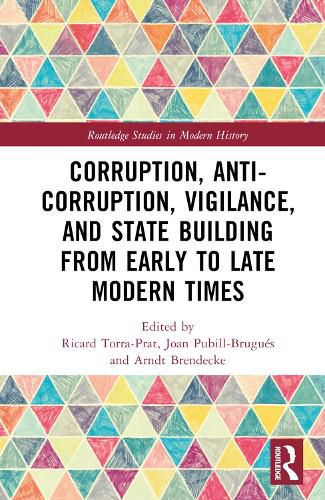Readings Newsletter
Become a Readings Member to make your shopping experience even easier.
Sign in or sign up for free!
You’re not far away from qualifying for FREE standard shipping within Australia
You’ve qualified for FREE standard shipping within Australia
The cart is loading…






Corruption, Anti-Corruption, Vigilance, and State Building from Early to Late Modern Times challenges current historiographical approaches, proposing new interpretations to rethink the relation between corruption and the socio-political and economic transformations since early globalisation.
By adopting both transnational and long-term approaches, the book explores the historical dimension of notions such as accountability, transparency, and vigilance in their immediate political, social, and legal contexts. The starting point is to view corruption not as a moral category that emerged in 1789 to delegitimise past, foreign or present state systems, but as a constantly contested concept that must also be historicised in past societies. The collection revisits chronologies and examines different local, regional, and national frames, highlighting that the path to modernity was contested and affected by a variety of unique circumstances, such as revolutions and external political powers.
Building on the latest research and offering new methods of inquiry, this book is a compelling resource for academics interested in political history and the history of corruption.
$9.00 standard shipping within Australia
FREE standard shipping within Australia for orders over $100.00
Express & International shipping calculated at checkout
Corruption, Anti-Corruption, Vigilance, and State Building from Early to Late Modern Times challenges current historiographical approaches, proposing new interpretations to rethink the relation between corruption and the socio-political and economic transformations since early globalisation.
By adopting both transnational and long-term approaches, the book explores the historical dimension of notions such as accountability, transparency, and vigilance in their immediate political, social, and legal contexts. The starting point is to view corruption not as a moral category that emerged in 1789 to delegitimise past, foreign or present state systems, but as a constantly contested concept that must also be historicised in past societies. The collection revisits chronologies and examines different local, regional, and national frames, highlighting that the path to modernity was contested and affected by a variety of unique circumstances, such as revolutions and external political powers.
Building on the latest research and offering new methods of inquiry, this book is a compelling resource for academics interested in political history and the history of corruption.